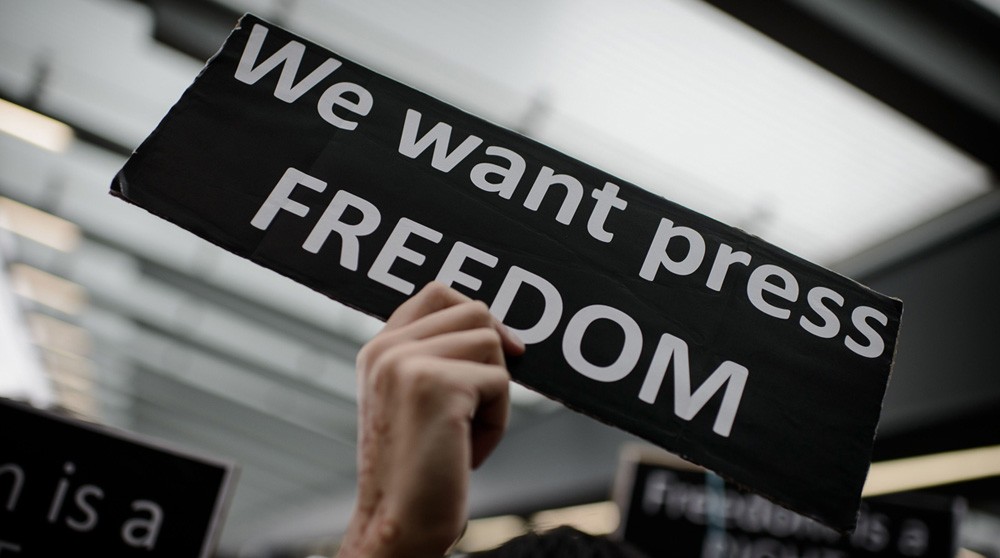
The Press Council of Pakistan’s growing crisis of mandate and credibility calls for an overhaul

The Network for Consumer Protection (TN), a not-for-profit organisation, works on tobacco control in Pakistan. The organisation filed a complaint in 2012 with the Press Council of Pakistan (PCP) against a Pakistani weekly over the publication of a testimonial of a veteran politician from Punjab regarding her "falling in love with the Marlboro Man." The complainant alleged that the weekly violated the tobacco control laws of Pakistan by publishing this testimonial glorifying tobacco use. The testimonial was published in the February 24, 2012 issue of the weekly. More than three years have passed, but the PCP has yet to decide the fate of the complaint.
This was an illustrative example. There are other complaints filed against newspapers. This is because the PCP is the only statutory body with the mandate to entertain complaints relating to newspapers, news agencies, editors and journalists in Pakistan. The Press Council Ordinance, 2002(Section 8 (2)), authorises the council to "receive a complaint by a newspaper, a journalist or any institution or individual concerned with a newspaper against federal government, provincial government or any organisation including political parties for interference in the free functioning of the press." The PCP is also mandated "to receive complaints about the violation of ethical code of practice relating to newspapers, news agencies, editors and journalists".
The PCP is becoming more like a bureaucracy than a quasi-judicial body to "act as a shield to freedom of the press" in the country.
The council has so far decided only 24 complaints and 16 suo moto cases since 2007. The data on the PCP’s website shows that almost all of these complaints/cases were filed/taken up and adjudicated before 2013. Since the arrival of new political regime at the federal level after the May 2013 general elections, the PCP has not taken up or decided any further case/complaint even though this has been a turbulent period with media itself becoming a story. This reflects poorly on the state of effectiveness of the council in entertaining complaints as per its mandate.
The administrative structure of the PCP is heavily loaded with deputies from the Federal Ministry of Information, Broadcast and National Heritage. According to the notifications of the Federal Ministry of Information, Broadcast and National Heritage, the current Registrar(s) of the council, Director General (Admin and Finance) and various other top-level officials are actually employees of the ministry. They are transferred to the council on deputation.
This temporary arrangement of having officials from a federal ministry compromises the autonomy and independence of the council. It also placed financial burden on the PCP as they also charge a monthly deputation allowance as well. It is, therefore, impractical to expect from these officials to entertain complaints against public officials and functionaries like sitting ministers.
The current priorities of the council are not what the Press Council Ordinance, 2002 has mandated it to do. It appears that the council, instead of timely redress of complaints, has started overstepping its authority and jurisdiction. This is reflected from its recent directive to the All Pakistan Newspapers Society to gag certain types of news and analysis. Instead of protecting press freedom in the country as mandated in the Ordinance, the chairman of this 19-member council on May 13, 2015 directed the APNS: "that reporting on Yemen crisis and Saudi Arabia, provision of Article 19 of Constitution of Islamic Republic of Pakistan may be kept in view by our print media. Acute care should be taken to avoid negative comments about our bilateral friendly relations with Arab countries."
The very purpose of the PCP, as enshrined in the preamble of the Ordinance, is to ensure "freedom of the press" in the country. The Ordinance requires the PCP to "act as a shield to freedom of the press". It is also responsible to make the press "accountable to society to serve public needs and preserve rights of citizens." Issuance of the above directive nowhere falls within the ambit of the council.
Nevertheless, this act is in negation of the spirit of Article 19 of the Constitution of Pakistan. This article states: "And there shall be freedom of the press, subject to any reasonable restrictions imposed by law." This means that only those restrictions, which are ‘reasonable’ and ‘imposed by law’ are valid restrictions. The reasonability of the restriction is to be determined by the court, keeping in view the public interest, and not by an administrative or semi-judicial authority like the PCP.
In a nutshell, the council is inappropriately exceeding its mandate. Instead of handling complaints against newspapers and helping newspapers and news agencies to maintain their independence, it is involving in ‘gagging’ press in Pakistan. The council, which is already suffering a credibility and autonomy crisis, must revisit its mandate and role.
It should hire its own staff consisting of technical experts rather than depending on deputies from the ministry and exclusively perform its function as given in Section 8 of the Press Council Ordinance, 2002. Otherwise, a bureaucratic PCP is mere a burden on public exchequer and have no purpose and it is, in such a condition, no longer a friend of the media.